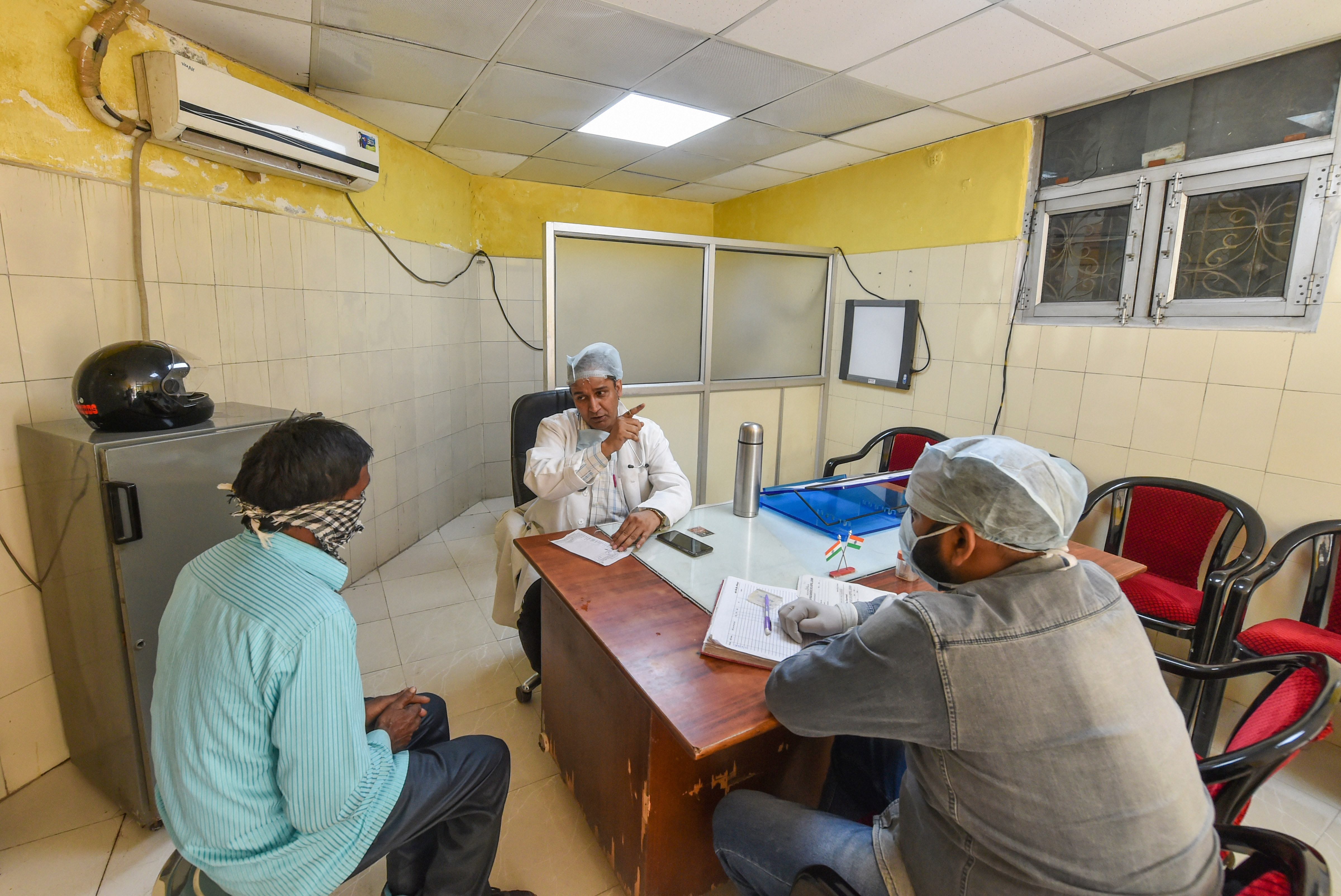India’s top science advisory body on Tuesday asked “all patients” with influenza-like symptoms such as fever, dry cough, or runny nose and living in densely populated areas to consult healthcare workers as part of efforts to slow down the spread of the coronavirus disease.
The Office of the Principal Scientific Adviser (PSA) to the government released guidelines for densely populated areas that urge all patients with such symptoms to consult government healthcare workers, in line with demands from health experts that the country needs to test all symptomatic patients.
Dr VijayRaghavan, the PSA, said the hygiene and sanitation document describes measures that people can take to reduce the spread. The suggestions also include steps to reduce the extent of crowding in clinics and out-patient departments for illnesses that require routine attention.
“Seeking advice first locally for health matters is what is being suggested,” VijayRaghavan told The Telegraph. “At that point, it can be determined what steps need to be taken. The health ministry guidelines on who is to be screened for testing will of course be definitive.”
While the guidelines call on all patients with influenza-like illness to report to ASHA (accredited social health activists), anganwadi or other frontline healthcare workers, health experts point out that they are not in consonance with the health ministry’s current published testing criteria.
A senior health ministry official said the guidelines from the PSA were in line with the government’s current efforts to “detect any positive case at the field level as quickly as possible”.
“Through these guidelines, we want anyone with the symptoms, whether living in villages or towns, to approach us through either call centres or such frontline workers,” said Lav Agarwal, a joint secretary in the health ministry.
“We’ve oriented these healthcare workers to follow a certain process and inform their supervisors or refer them to specific hospitals,” Agarwal said.
Health experts point out many such patients might need to travel long distances for tests because they are still not available in locations across the country. The Indian Council of Medical Research (ICMR) has helped establish a network of 160 government labs and approved 60 private labs.
“There are limitations in our testing capacity — for instance, we don’t have test facilities in every district,” said Oommen John, a public health expert with The George Institute for Global Health, New Delhi.
Although health authorities have screened around 230,000 samples across the country, the rate of testing has varied across different states. Maharashtra has tested more than 40,000 people, Delhi has tested around 15,000 while Bengal, Haryana, Jammu and Kashmir, Punjab and Odisha have tested less than 5,000 samples each.
Health officials have said the testing rate may be low in some states because there are not sufficient number of people who fit the eligibility criteria for testing — contacts of known positive persons or patients with severe acute respiratory illness.
Public health experts have for weeks been urging the government to expand testing to look for the coronavirus in persons with even mild symptoms, cautioning that if such patients remain undetected, they could spread the virus to others in their localities.
“You can’t stop the spread of the virus until you find patients with even mild symptoms,” said T. Sundararaman, a community medicine specialist and member of the Jan Swasthya Abhiyan, a non-government physicians’ group that has urged the government to expand its testing criteria.
The current testing criteria recommends testing all persons with severe acute respiratory illness (fever AND cough, and/or shortness of breath) but on all persons with influenza-like illness (fever, cough, sore throat, runny nose) only in “hotspots”, areas with clusters of cases or large gatherings.
The Indian Council of Medical Research plans to roll out so-called rapid antibody tests in hotspots across the country. These tests can quickly identify people with antibodies to the coronavirus and already exposed to the infection.
The government at present has sufficient numbers of virus-detection kits to support six weeks of testing, a senior ICMR official said. “We’ve ordered 33 lakh more such kits and 37 lakh rapid diagnostic kits that are expected to arrive any day,” the official said.
A public health specialist said it would be good if the government also outlined specific and well-defined criteria to enable the public to determine for themselves whether they need to present themselves for testing.
“The government needs to specify red flags so that only people with suspicious symptoms would be screened,” said John. “We don’t want a situation where everyone with runny nose crowd around healthcare centres.”
Sundaraman said an algorithm for screening could, for instance, require a person to have had fever with respiratory symptoms for at least three days.











